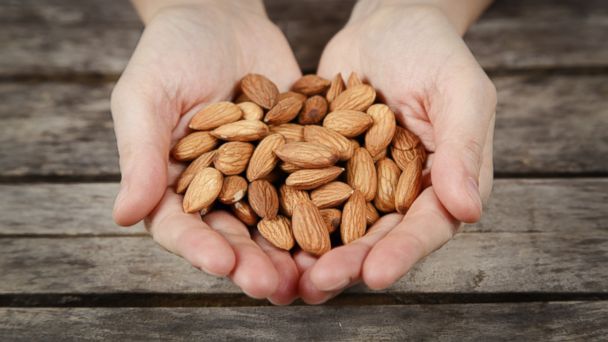
Tea has been found to help promote weight loss, improve bone and heart health, slow the progression of prostate cancer and activate areas of the brain that bolster attention, problem solving and mood, say researchers.
The December 2013 issue of the American Journal of Clinical Nutrition features 12 new articles about the relationship between tea and human health. Each paper is based on presentations from world-renowned scientists who participated in the Fifth International Scientific Symposium on Tea and Human Health, held at USDA in September 2012. Highlights of some of the compelling reports published through the AJCN include the following five papers:
Tea Leaf Polyphenols May Promote Weight Loss
Tea polyphenols and the caffeine content in tea increase energy expenditure and fat oxidation, providing benefits for achieving and maintaining an ideal body weight. The results of one meta-analysis suggests the increase in caloric expenditure is equal to about 100 calories over a 24-hour period, or 0.13 calories per mg catechins. In a related review, researchers concluded that subjects consuming green tea and caffeine lost an average of 2.9 pounds within 12 weeks while adhering to their regular diet. Population-based studies also show that habitual tea drinkers have lower Body Mass Indexes (BMIs) and waist-to-hip ratios and less body fat than non-tea drinkers. In addition, green tea and caffeine also appear to boost fat oxidation over 24 hours by an average of 16% or 0.02 grams per mg catechins.
Tea May Reduce Risk for Some Cancers
Green tea polyphenols may play a role in arresting the progression of certain cancers. For example, in a double-blind, placebo-controlled study, supplementation with 600 mg/d green tea catechins reduced the progression of prostate cancer. The researchers reported that after a year, 9% of men in the green tea supplemented group had progressed to prostate cancer whereas 30% of men in the placebo group had progressed.
Hundreds—if not thousands—of laboratory, epidemiological and human intervention studies have found anti-cancer properties in compounds present in tea. The types of cancer that have shown benefits of tea include cancers of the gastrointestinal tract, lung, prostate, breast, and skin. The proposed mechanisms of action for providing protection against cancer include antioxidant effects, inhibition of growth factor signaling, as well as improving the efficacy of chemotherapy agents.
Tea Catechins are Cardioprotective
Numerous studies suggest tea supports heart health and healthy blood pressure, and appears to be associated with a reduced risk of cardiovascular disease, including stroke and heart attack. New research, published in the AJCN provides further support. Study results published by Claudio Ferri, MD, University L’Aquila, Italy, found that black tea reduced blood pressure, and among hypertensive subjects, it helped counteract the negative effects of a high-fat meal on blood pressure and arterial blood flow. Hypertensive subjects were instructed to drink a cup of tea after a meal that contained 0.45 grams fat/lb. body weight. The results suggest that tea prevented the reduction in flow-mediated dilation (FMD), the ability to increase arterial blood flow that occurs after a high-fat meal. In a previous study conducted by Ferri, tea improved FMD from 7.8 to 10.3%, and reduced both systolic and diastolic blood pressure by -2.6 and -2.2 mmHg, respectively, in study participants.
“Our studies build on previous work to clearly show that drinking as little as one cup of tea per day supports healthy arterial function and blood pressure. These results suggest that on a population scale, drinking tea could help reduce significantly the incidence of stroke, heart attack and other cardiovascular diseases,” concluded Dr. Ferri.
Tea Flavonoids Improve Bone Strength and Quality
Osteoporosis is a major public health concern but new research suggests that polyphenols in green tea may help improve bone quality and strength through many proposed mechanisms. In fact, one study found that tea drinking was associated with a 30% reduced risk in hip fractures among men and women over 50 years old. In a study of 150 postmenopausal women, researchers reported that 500 mg green tea extract (equivalent to 4-6 cups of green tea daily), alone or in combination with Tai Chi, improved markers for bone formation, reduced markers of inflammation and increased muscle strength in study participants. Numerous other studies have found that green tea flavanols provide a restorative effect to bone remodeling to help maintain bone density and slow bone loss.
Tea Improves Mood, Alertness and Problem Solving
Results from new research published in the American Journal of Clinical Nutrition found that drinking tea improved attention and allowed individuals to be more focused on the task at hand. In this placebo-controlled study, subjects who drank tea produced more accurate results during an attention task and also felt more alert than subjects drinking a placebo. These effects were found for 2-3 cups of tea consumed within a time period of up to 90 minutes. Several studies have evaluated the role of tea in strengthening attention, mood and performance, and the results have been promising. It is thought that the amino acid theanine and caffeine, both present in tea, contribute to many of tea’s psychological benefits.
Twelve internationally renowned researchers contributed to the AJCN supplement, including experts from USDA, National Institutes of Health, UCLA, University of Glasgow and University of L’Aquila, among others. “The scientists who contributed their original research and insights are among the best in the world, and together, this body of research has significantly advanced the science of tea and human health,” said compendium editor Jeffrey Blumberg, PhD, Professor, Friedman School of Nutrition Science and Policy and Director, Antioxidants Research Laboratory, Jean Mayer USDA Human Nutrition Research Center on Aging at Tufts University, Boston.
“These new peer-reviewed papers add to the previously-published body of evidence that shows that tea can improve human health—both physically and psychologically,” added Blumberg. “Humans have been drinking tea for some 5,000 years, dating back to the Paleolithic period. Modern research is providing the proof that there are real health benefits to gain from enjoying this ancient beverage.”
Source: med india











